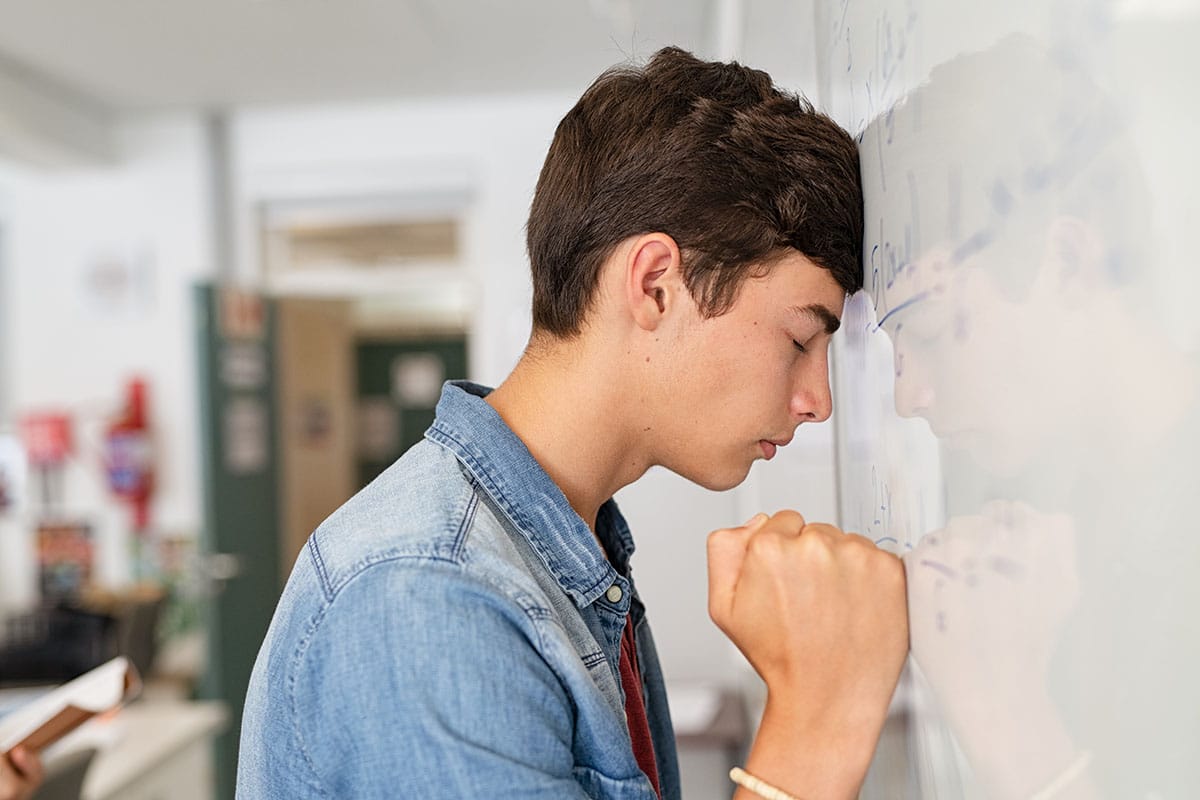

 字體:小 中 大
字體:小 中 大 |
|
|
|
| 2024/07/17 18:34:38瀏覽20|回應0|推薦0 | |
Social anxiety disorder (SAD) is a common mental health issue, affecting about 15 million grown-ups in the United States. Its symptoms normally start during the teenage years. For parents, its very important to be able to identify signs of teen social anxiety in your teenager so you can give them the necessary support and help at the right time. In this article, we will look into the main indicators for social anxiety among teens as well as guide how you can assist your child with handling this difficult condition. Understanding Social Anxiety in TeensSocial anxiety disorder is seen when someone has a strong fear of social situations and worries about being judged, embarrassed, or humiliated by other people. While teenagers naturally feel self-conscious sometimes, social anxiety is more than just normal shyness. It substantially affects the daily life and general health of a teenager. The Impact of Social Anxiety on AdolescentsSocial anxiety disorder (SAD) can greatly impact teenagers, causing issues in their school life, social interactions, and emotional growth. Adolescents who have SAD might find it difficult to create new friendships, involve themselves in class, or join after-school activities which creates a sense of being alone and lowers their self-confidence level. Key Indicators of Social Anxiety in TeenagersThe initial phase in assisting your teenager with social anxiety is to recognize the indications and seek suitable aid. Watch for these frequent signs: Avoidance BehaviorsAdolescents having social anxiety can sometimes try their best to evade situations that make them feel anxious in a social setting. This could involve:
Physical SymptomsSocial anxiety can manifest in various physical symptoms, especially when faced with social situations:
Emotional and Cognitive SignsObserve if your teenager often feels worried about being judged or negatively evaluated. gated by others. They might exhibit signs of social anxiety disorder such as avoiding social situations, excessively self-conscious behavior, and fear of humiliation. Watch out for potential signs that your teen is struggling with social anxiety:
Social DifficultiesTeens with social anxiety may struggle with various aspects of social interaction.:
Distinguishing Social Anxiety from Normal Teenage BehaviorIt is crucial to distinguish between the usual shyness of teenagers and social anxiety disorder. Although many adolescents have times when they feel self-conscious or nervous in certain social settings, SAD involves a continuous and strong fear that greatly affects their daily lives. When to Seek Professional HelpIf you see that your teenager’s signs of social anxiety continue, are very serious, and stop them from truly participating in regular activities, it might be necessary to get advice from a mental health expert. Getting help early can change how well they handle their social anxiety and avoid any lasting effects. Supporting Your Teen with Social AnxietyOpen CommunicationProvide a secure environment where your teenager can openly talk about their emotions and worries. Listen actively to them and acknowledge their experiences without making light of the anxiety they are going through. Encourage Gradual ExposureMake your teen confront fears in steps by establishing achievable goals for social interaction. This could include rehearsing dialogue, going to minor gatherings, or getting involved in a club or group that matches their likes. Teach Coping StrategiesDevelop mechanisms for coping with anxiety together, like deep breathing exercises, techniques of mindfulness, or speaking positively to oneself. Model Confident Social BehaviorExhibit good social dealings and handling mechanisms in your own life, giving a favorable model for your teenager to follow. Promote Self-CareUrge your teenager to place self-care activities at the top of their list. These include things like exercising regularly, having enough sleep, and maintaining good eating habits that lessen stress and enhance their general health. Professional Treatment OptionsIf your teenager’s social anxiety continues or gets worse, think about getting professional assistance. Treatment choices could be: Cognitive Behavioral Therapy (CBT)CBT has been demonstrated to be quite effective in dealing with social anxiety, allowing teenagers to recognize and contest their pessimistic thought routines while also creating better ways of handling them. Exposure TherapyThis therapy includes a step-by-step process where the teenager is slowly exposed to situations that trigger anxiety, in an organized and caring setting. The intention is for the teen to gain more trust and lessen fear as they experience these circumstances repeatedly. MedicationSometimes, a person who specializes in mental health might suggest medicine like selective serotonin reuptake inhibitors (SSRIs) for treating serious signs of social anxiety. Final ThoughtsIt is very important to identify signs of social anxiety in your teenager so that you can give support and help at the right time. By knowing about the main indications, being able to differentiate between normal teenage actions and a disorder like social anxiety, and using supportive techniques - you can aid your teen handle this difficult condition. Keep in mind, that teenagers who have social anxiety can learn how to handle their symptoms well with proper support and treatment. They will also be able to enjoy life fully by participating in social activities happily. |
|
| ( 心情隨筆|心情日記 ) |










